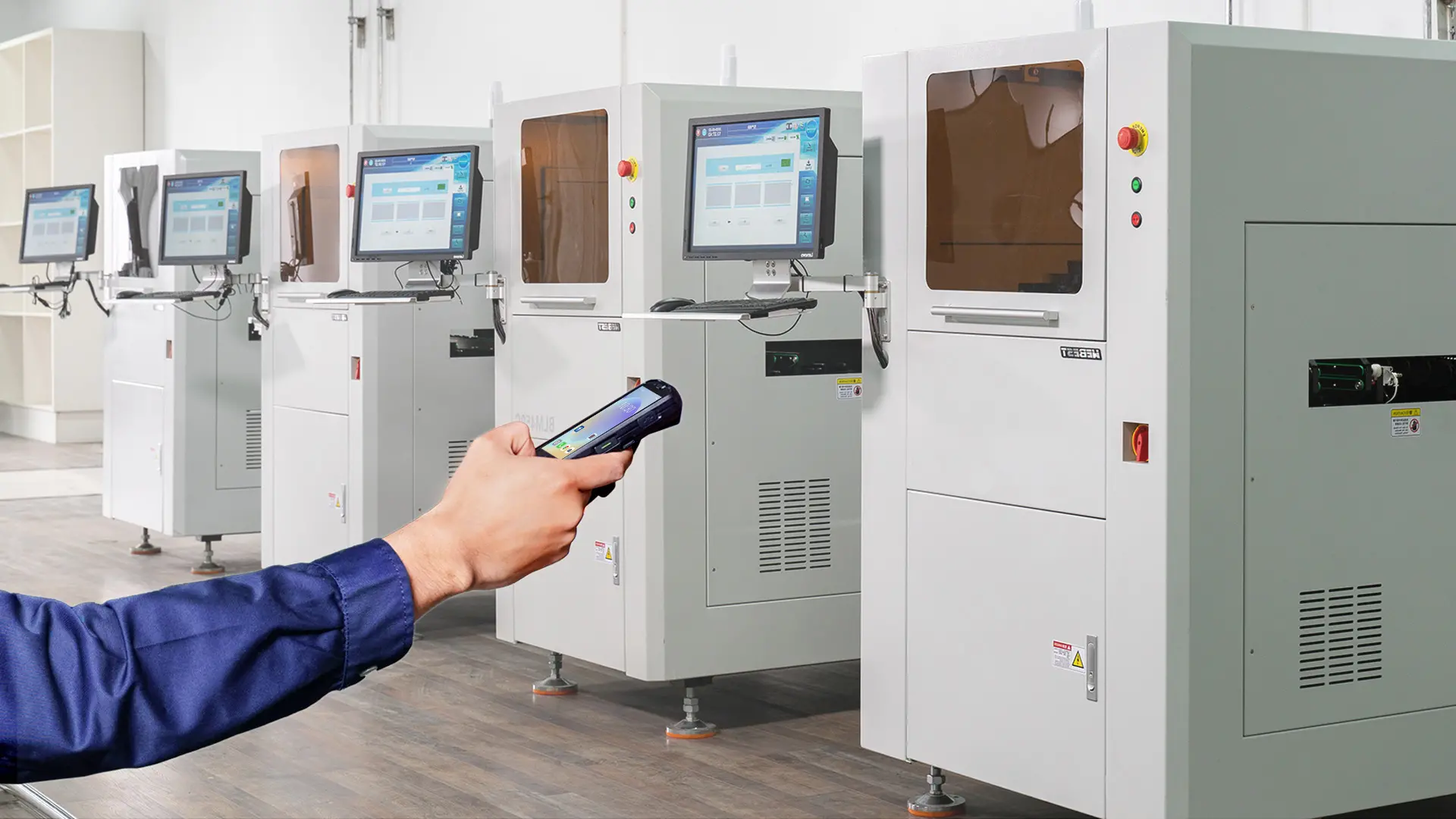Brief Introduction
mobile computer terminals usually refer to a portable electronic device, including but not limited to mobile computer POS machines, mobile data terminals, barcode scanners and smart phones. These devices are generally equipped with operating systems (such as Android or Windows) and are equipped with various application software to realize functions such as data collection, information reading and real-time communication. So, what exactly does a mobile computer do? Let Dongji Xiaobian take you to explore this topic in depth.
I.The main functions of mobile computer terminals
mobile computer terminals have a variety of functions, which can be mainly summarized into the following categories:1. Data collection: mobile computer terminals can quickly read product information through barcode scanning, RFID identification, NFC technology, etc. Whether in warehouse management, inventory counting or sales scenarios, fast and accurate data collection greatly improves work efficiency.
2. Real-time communication: mobile computer terminals support wireless networks and mobile networks, and can realize instant messaging functions. Through data transmission in the cloud, the flow of information within the enterprise becomes more efficient and is no longer limited to a fixed work location.
3. Mobile payment: In the retail and catering industries, mobile computer terminals are used as carriers of mobile payments, making transactions more convenient. Customers do not need to queue up at the checkout counter to check out, which improves the shopping experience.
4. Data analysis: Many high-end mobile computer terminals can be connected to the big data analysis platform, and through real-time data monitoring and analysis, help companies make more accurate decisions and strategic adjustments.II. Application of mobile computer terminals in various industries
1. Retail industry: mobile computer terminals are particularly widely used in the retail industry. Through the mobile POS system, merchants can realize mobile checkout and reduce customer waiting time. At the same time, merchants can also use mobile computer terminals to conduct real-time inventory counts to ensure that the supply chain management of goods is more efficient.2. Logistics industry: In the logistics industry, mobile computer terminals are widely used for cargo tracking and information updates. Workers use mobile computer scanning devices to scan the barcodes of goods in real time, and the system will automatically update the inventory information, thereby improving logistics efficiency. In addition, logistics companies can also communicate with drivers in real time through mobile computer devices and adjust delivery plans in time.
3. Medical industry: In the medical field, the application of mobile computer terminals can improve the quality of patient care. Nurses can obtain patients' medical information and historical records at any time through mobile computer devices, and conduct more accurate treatment. At the same time, mobile computer terminals can also be used for drug management and drug distribution to reduce the risk of wrong medication.
4. Manufacturing: In the manufacturing industry, mobile computer terminals can assist workers in real-time data entry and equipment monitoring at the production site. By scanning the barcodes of parts, workers can quickly obtain online production data and improve production efficiency and quality.- The Critical Role of Mobile Computers in Warehouse Logistics2025-06-25
- Seuic Mobile Computers: Multi-Scenario Efficiency Solutions2025-06-24
- Operation Guide and Industry Applications of Seuic Mobile Computers2025-06-23
- How to Choose Mobile Computers for Your Industry Needs2025-06-20
- Mobile Computers: The All-in-One Tool from Data Collection to Industry Implementation2025-06-19
